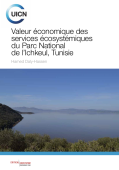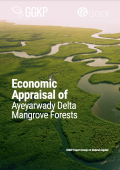This case study advocates for integrating the values of goods and services provided by forest ecosystems into policy making in Tunisia. It discusses an assessment previously conducted jointly by the National Forest Programme (NFP) and the Food and Agricultural Organization (FAO) on the Total Economic Value (TEV) of Tunisian forests in order to address the question of whether the conservation and expansion of the Tunisian forests can be justified economically.
The study notes that while forest ecosystems in Tunisia provide a wide array of valuable goods and services that improve the well-being of society, the values provided by forest ecosystems remain mostly non-marketed, the financial revenue generated from forests is low, and the total benefits can be significantly reduced by costs associated with the overuse of forest resources. Specifically, the results show that the TEV of Tunisian forests amounted to USD 142 million in 2010, corresponding to US$120 per ha. This represents 20 times the value of net benefits generated by forest products sold by the state. The distribution of the forest value among stakeholders shows that local populations are the main forest beneficiaries, capturing 61 percent of total benefits, mainly through opportunities for livestock grazing. In addition, the Tunisian society benefits from 22 percent of TEV through soil and water conservation, the international community receives 12 percent through carbon sequestration and biodiversity conservation, and the state of Tunisia benefits from 5 percent through sales of forest products. However, the overuse of forest resources and forest fires usually cause high social costs associated with the loss of production, carbon emissions, land degradation, and loss of biodiversity. These external costs are estimated to reduce the total current benefits of forests by about 6 percent.
Therefore, the challenge is to design policy and economic instruments that take into account these intertwined environmental and economic objectives. For example, the study recommends that forest management and conservation be accompanied by a compensation system for income losses. In addition, it suggests further developing the idea of creating a Forest Development Fund, funded by a tax on products and services provided by forests.


